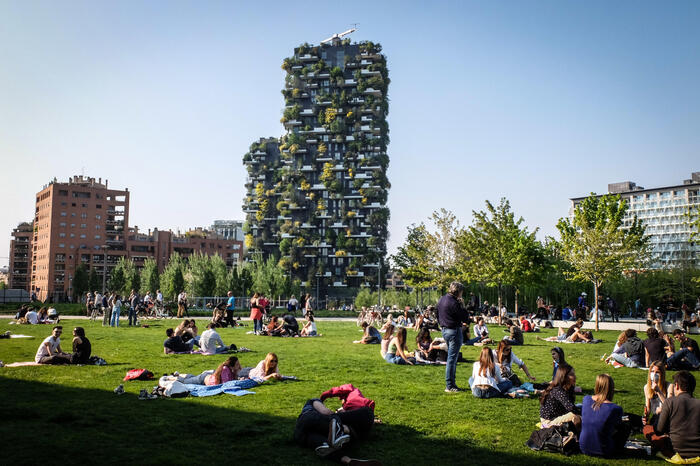New zero-emission homes.
And for all the others, more stringent efficiency requirements.
Europe's controversial turning point on emissions from public and private buildings receives the final yes from the European Parliament.
A directive with softer constraints than the first bill presented by Brussels, which grants greater flexibility to the Twenty-Seven for restructuring.
Here are the main elements of the text definitively approved by the Chamber with 370 votes in favour, 199 against and 46 abstentions.
* NEW BUILDINGS - They must be zero-emission starting from 2030. For those in public ownership the deadline is set for 2028.
* RENOVATIONS - The idea of harmonized energy classes has been abandoned, at least 16% - compared to 2020 - of public buildings with the worst performances will have to be renovated by 2030 and 26% by 2033. For homes, an energy consumption reduction target of 16% from 2030 and 20-22% by 2035 will be applied. A promotion that requires interventions such as thermal coat, replacement of fixtures, new condensing boilers, solar panels.
* SOLAR PANELS - The obligation to install them will concern new public buildings and will be progressive, from 2026 to 2030. National strategies, policies and measures must also be implemented to equip residential buildings with solar systems.
* GAS BOILERS - Countries will have until 2040 to say goodbye to fossil fuel boilers, while from 2025 all subsidies for autonomous fossil fuel boilers will be abolished.
Incentives are also planned to encourage the transition to heating and cooling systems powered by renewable energy.
* FLEXIBILITY - The restructuring measures adopted from 2020 will be counted towards the efficiency objective.
* EXEMPTIONS - Governments will be able to exempt historic and agricultural buildings, churches and places of worship, properties for military use and those used only temporarily.
* ENTRY INTO FORCE - The agreement will now have to be confirmed by national governments and then published in the Official Journal and come into force twenty days later.
* NATIONAL PLANS - The Twenty-Seven will have two years to adapt by presenting their roadmaps to Brussels to indicate the path they intend to follow to achieve the efficiency objectives.
* INVESTMENTS - The European Commission estimates that by 2030, 275 billion euros of annual investments will be needed for the energy transformation of the building stock, i.e. 152 billion euros of investments per year more than current resources.
Dedicated funding is not foreseen, but countries will be able to draw on EU funds to support the change: among these, the Social Climate Fund, the Recovery Fund and the Regional Development Funds.

